Getting an FHA Loan with a Chapter 13 Bankruptcy in South Carolina (2025)
Filing for bankruptcy is a challenging experience, but it doesn’t mean the door to homeownership is closed forever. If you’ve filed for Chapter 13 bankruptcy in South Carolina, you may still be eligible for an FHA loan in 2025. The Federal Housing Administration (FHA) loan program is designed to help individuals with less-than-perfect credit, including those who have undergone bankruptcy, buy a home. In this article, we will explore how you can qualify for an FHA loan after a Chapter 13 bankruptcy, the requirements, and the steps to take in 2025.
What is an FHA Loan?
Before we dive into how Chapter 13 bankruptcy impacts FHA loan eligibility, it’s important to understand what an FHA loan is. An FHA loan is a government-backed mortgage that is designed to help people with lower credit scores or limited financial resources qualify for homeownership.
FHA loans are typically more forgiving when it comes to credit history and allow for lower down payments (as low as 3.5%). They are issued by approved lenders and insured by the Federal Housing Administration, making them an appealing option for many borrowers who may not qualify for conventional loans.
Chapter 13 Bankruptcy and FHA Loans
A Chapter 13 bankruptcy is a type of bankruptcy where the debtor agrees to a repayment plan, usually lasting 3 to 5 years, to repay creditors. Unlike Chapter 7 bankruptcy, where debts are discharged, Chapter 13 involves restructuring the debt and paying back a portion of it over time.
If you’ve filed for Chapter 13 bankruptcy, you might be wondering if you can still buy a home with an FHA loan. The answer is yes, but there are specific conditions you need to meet.
FHA Loan Eligibility After Chapter 13 Bankruptcy in South Carolina
In 2025, FHA loan guidelines allow individuals who have filed for Chapter 13 bankruptcy to qualify for a loan, but there are several important requirements you must meet:
1. Wait for the Required Time Period
One of the most important factors when applying for an FHA loan after Chapter 13 bankruptcy is the waiting period. The FHA has specific guidelines for how long you must wait after your bankruptcy discharge or dismissal before you can apply for an FHA loan.
•After Discharge: If your Chapter 13 bankruptcy was discharged, you typically need to wait two years from the discharge date before applying for an FHA loan. The discharge date is the date the court officially finalizes your bankruptcy.
•After Dismissal: If your Chapter 13 bankruptcy was dismissed (not completed or discharged), you usually need to wait two years from the dismissal date.
2. Satisfactory Credit History
While FHA loans are known for being more lenient when it comes to credit scores, applicants who have undergone a Chapter 13 bankruptcy must demonstrate that they have re-established their credit since the bankruptcy. This means:
•No Late Payments: You need to have made timely payments on all debts, including the repayment plan under Chapter 13, for at least 12 months before applying for the FHA loan. This includes paying any existing debt obligations as well as your current Chapter 13 plan.
•Credit Score: While the FHA does not impose a specific credit score for Chapter 13 bankruptcy applicants, many lenders will have their own minimum requirements, which typically range between 580 and 620. A higher credit score will improve your chances of loan approval.
3. Evidence of Successful Chapter 13 Plan Payments
Lenders want to see that you are able to responsibly manage debt and follow through on your repayment commitments. This means that you must have made regular, on-time payments under your Chapter 13 bankruptcy plan for at least 12 months.
If you are currently in a Chapter 13 repayment plan and applying for an FHA loan, you will need to:
•Provide documentation of your successful Chapter 13 payments.
•Show that you have adhered to your repayment plan.
•Obtain approval from the bankruptcy court or trustee to proceed with the loan.
4. A Strong Debt-to-Income (DTI) Ratio
Your debt-to-income (DTI) ratio is another key factor in FHA loan eligibility. FHA guidelines allow a maximum DTI ratio of 43%, though this can vary depending on your credit profile and other factors. This means that your monthly debt payments (including the new mortgage) should not exceed 43% of your gross monthly income.
If your DTI is higher than 43%, you may still qualify if you can demonstrate compensating factors such as a higher credit score or additional income.
5. Stable Income and Employment
You must show proof of stable income and employment. Lenders want to see that you have a reliable source of income to support your mortgage payments. In most cases, you’ll need to have at least two years of steady employment in the same job or industry. Self-employed individuals will need to provide tax returns, profit and loss statements, and other relevant documentation.
6. FHA-Approved Lender
You’ll need to apply with a lender that is approved by the FHA. Not all lenders offer FHA loans, so it’s crucial to choose a lender with experience in working with clients who have a bankruptcy history. A good lender will guide you through the process and help you meet all the requirements.
Steps to Apply for an FHA Loan After Chapter 13 Bankruptcy in South Carolina
Now that you know the eligibility requirements, let’s go over the steps you should follow to apply for an FHA loan in South Carolina after a Chapter 13 bankruptcy in 2025.
1. Review Your Bankruptcy and Financial Situation
Before you start the loan application process, take a close look at your financial situation. Review your credit report and ensure that all debts are being reported accurately. You should also gather documentation to demonstrate that you’ve made timely payments on your Chapter 13 plan.
It’s important to ensure that you meet the following:
•At least 12 months of successful Chapter 13 plan payments
•Stable income and employment history
•A credit score of at least 580-620
•A manageable debt-to-income ratio
2. Get Pre-Approved for an FHA Loan
The next step is to get pre-approved by an FHA-approved lender. The pre-approval process will involve providing documentation such as:
•Proof of income (e.g., pay stubs, tax returns)
•Bank statements
•Documentation of your Chapter 13 plan and payment history
•Your credit report
Pre-approval is important because it helps you understand how much home you can afford and allows you to move quickly when you find the right property.
3. Find an FHA-Approved Property
FHA loans can only be used to finance properties that meet certain standards. The property you’re purchasing must pass an FHA appraisal, which ensures that the home meets the FHA’s minimum property requirements (MPRs). These MPRs include ensuring the home is safe, habitable, and free from significant defects.
4. Apply for the FHA Loan
Once you’re pre-approved and have found a suitable property, you can formally apply for the FHA loan. The lender will conduct a full review of your financial situation, and they may request additional documentation. Once your application is submitted, the lender will order an FHA appraisal and begin underwriting.
5. Close on the Loan
If your FHA loan is approved, you’ll proceed to the closing process. During closing, you’ll review and sign all necessary documents, and the mortgage will be finalized. You’ll then become the official homeowner.
Additional Considerations for FHA Loans with a Chapter 13 Bankruptcy in South Carolina
Compensating Factors
If your credit score is lower than what is typically required for an FHA loan, or if you have a higher debt-to-income ratio, you may still be able to qualify by demonstrating compensating factors. These could include:
•A larger down payment
•A higher amount of savings
•A history of saving money after your bankruptcy
•A letter of explanation that provides context for your bankruptcy
Using a Co-Signer or Co-Borrower
If you’re struggling to meet the credit or DTI requirements on your own, you may be able to use a co-signer or co-borrower to increase your chances of loan approval. A co-signer with strong credit can help improve your application and ensure you meet the eligibility criteria.
Working with an Experienced FHA Lender
Navigating the FHA loan process after a Chapter 13 bankruptcy can be complex. It’s highly recommended to work with an experienced lender who understands the nuances of FHA loans and has experience working with individuals who have gone through bankruptcy. They can help you gather the necessary documentation, guide you through the application process, and improve your chances of approval.
Conclusion
In 2025, obtaining an FHA loan with a Chapter 13 bankruptcy in South Carolina is entirely possible, provided you meet the eligibility requirements and demonstrate that you’ve successfully managed your finances since the bankruptcy. By waiting the necessary time, maintaining a strong payment history, and meeting income and credit requirements, you can still achieve homeownership even after a Chapter 13 bankruptcy.
If you’re ready to explore your options for an FHA loan in South Carolina, be sure to reach out to an FHA-approved lender who can guide you through the process. With determination and the right support, you can make your dream of owning a home a reality again, even after bankruptcy.
For more information on FHA loans in South Carolina, visit the U.S. Department of Housing and Urban Development (HUD) and FHA Lender Search for approved lenders in your area.

